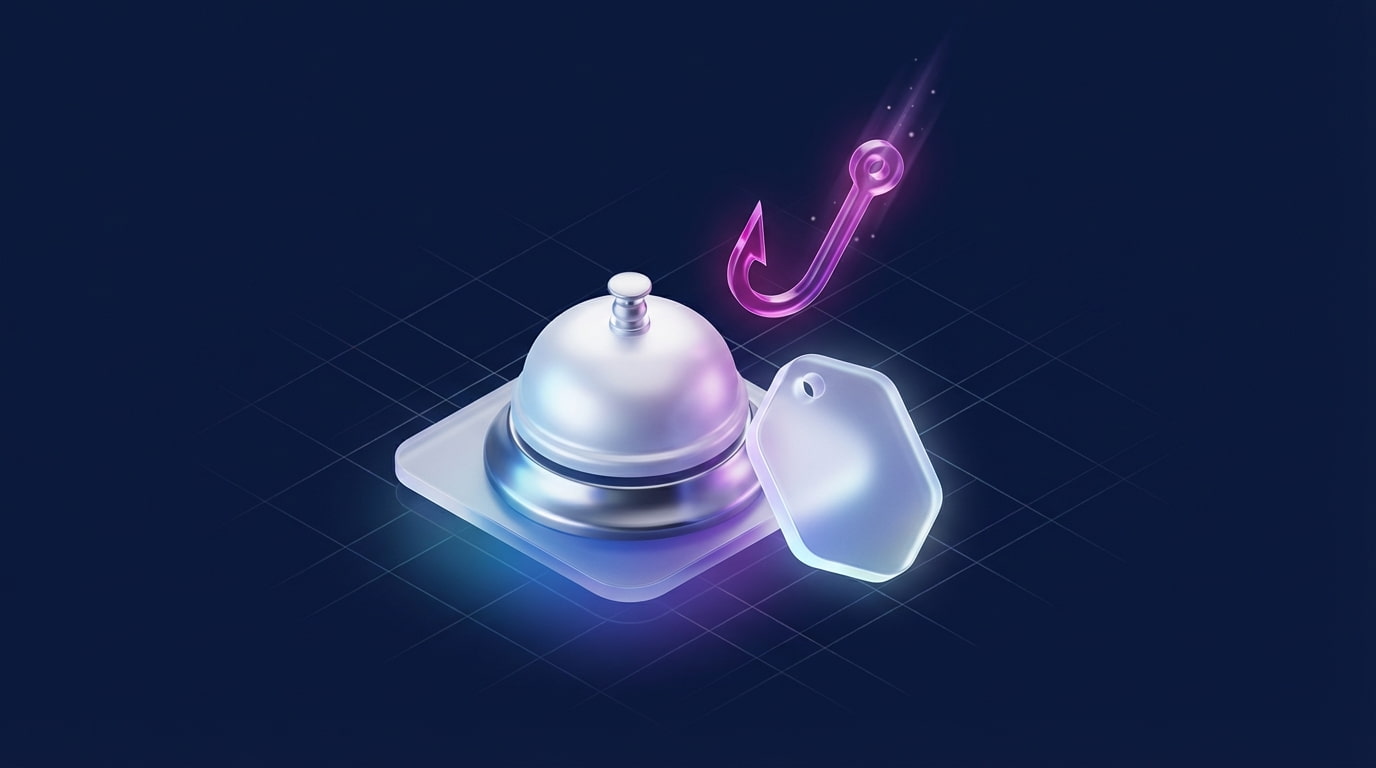Rookies and Innovation: How to Bet on Emerging Capabilities
Last week in the Hoxhunt Phish Bowl, I took the L against Dan Lohrmann. The culprit? His stud rookie running back, Ashton Jeanty, who dropped a week-4-RB-leading 33.5 points for the Las Vegas Raiders. It stung, but it was a beautiful sting. Because on my side, my own rookie, Omarion Hampton, finally broke out with 27.5 points. As much as I don’t like losing, there’s something special about seeing rookies fulfill their promise—on the field and on your fantasy roster.
In my 25 years of fantasy football (and baseball) experience, rookies have always been the swing factor. They’re the great unknown. No NFL track record, no safe baseline—you’re left to prognosticate based on college production, combine measurables, and pure gut feel. Sometimes it translates. Sometimes it doesn’t. And sometimes it transforms everything.
The Rookie Gamble
The NFL has shifted dramatically in the last 15 years. Rookies now get more immediate opportunities at every position. If you don’t draft them, someone else will—and they’ll be reaping early-round production at a late-round cost. That’s a massive risk/reward equation that you want to be in your favor.
The savvy approach?
- Do your homework. Watch tape, read scouting reports, and follow usage patterns.
- Balance your portfolio. Rookies are high variance. Surround them with veterans who have high floors and stable production.
- Spread your bets. Take a couple rookies late and hope at least one hits.
Last year’s rookie QB and WR classes looked generational (despite the bad injury luck with Malik Nabers, Jayden Daniels, and JJ McCarthy). But rookie RBs? That well has been dry. You really have to go back to 2017’s historic class—Christian McCaffrey, Leonard Fournette (who was projected to be the next Great One), Alvin Kamara, Kareem Hunt, Joe Mixon, Aaron Jones, James Conner, Chris Carson (in the 7th round!), and the greatest undrafted RB of all time, Austin Ekeler. That group disrupted the position’s old guard. If you missed out, you were cooked.
I'm goig to brag for a moment. I traded Antonio Brown—the consensus dynasty WR1 and overall player at the time—for draft picks, and turned them into CMC, Hunt, Jones, Conner (who I later packaged in a trade for Fournette, oops). The result? A juggernaut. Multiple championships. Dynasty dominance.
That class made us greedy. We expected a new RB harvest every year. Instead, we got boom-bust crops like 2018 (Saquon and Chubb… then a lot of meh) or 2019 (Josh Jacobs as the lone gem). A few bright spots have emerged since—Jonathan Taylor, Breece Hall, Bijan Robinson, Jahmyr Gibbs, James Cook—but nothing like 2017. Until maybe now.
And that’s the lesson. Every so often, rookies reset the game. And you have to be prepared. This is how we say "disruption" in sports-speak.
Cybersecurity’s Rookie Class: AI
The same calculus applies in cybersecurity. Chance—and success—favors the prepared mind.
Right now, AI is the transcendent rookie class. A once-in-a-generation disruptor.
Attackers are already drafting AI onto their rosters:
- AI bots scan for vulnerabilities—and exploit them—at lightning speed.
- AI phishing engines scrape OSINT and craft personalized spear phish at scale; spear phishign is becoming the new normal.
- Campaigns that once took weeks now launch in minutes, at scale.
If defenders don’t adopt AI capabilities of their own (and drop obsolete operating models), they’re going to get left behind; just like fantasy managers who passed on on all those Hall of Fame-caliber RBs in 2017.
But there’s a catch: unless you’re Google or Microsoft, you can’t just “develop” a full AI-powered security stack in-house. You need to scout, research, and select vendors the way you’d draft rookies. Who’s got the technical chops? Who has a dependable service model and good people to work with? Who’s got the business acumen to sustain?
Who’s worth a spot on your roster?
Risk, Reward, and Ryan Boulais
Ryan Boulais, CISO of Bunge and the top scorer in this year’s Phish Bowl, sums it all up perfectly:
[.c-quote-box][.c-quote-wrapper][.c-quote-icon][.c-quote-icon][.c-quote-right-col][.c-quote-text-wrapper][.c-quote-text]“Investing in cyber security capabilities is a constant balance of risk/reward. As a CISO, you have to decide where you can take some risk and partner with a start-up or newcomer. Drafting or starting the right rookie is somewhat like choosing the right start-up. You’ve done all the research possible, but without a proven track record, you’re not sure how it will work out. If it does work out, it can be a total game-changer for your program—and your fantasy league.[.c-quote-text][.c-quote-text-wrapper][.c-quote-name-wrapper][.c-quote-name]Ryan Boulaise, CISO of Bunge[.c-quote-name][.c-quote-name-wrapper][.c-quote-right-col][.c-quote-wrapper][.c-quote-box]
That’s the balancing act: risk a gap now for a shot at a game-changing capability later
Boom or Bust
Ryan has himself explored the risk/reward equation in all its glory and disappointment.
I’ve lived both sides. In the Phish Bowl, I drafted Emeka Egbuka, and he’s been crushing it for me. In another league, I went all-in on rookies as an experiment—Treveyon Henderson, Bill Criskey-Merritt, Matthew Golden—and it's been a different story. On paper? Exciting. In reality? Massive underperformance. If my cyber program looked like that roster, I’d have massive gaps everywhere!
That’s why balance is everything. Bet on upside. Hedge with reliability. Be willing to take a swing, but don’t mortgage your stability.
The Rookie’s Edge
Fantasy veterans know: if you don’t take chances on rookies, you’re playing not to lose instead of playing to win. The same is true in cybersecurity. If you only invest in “proven” solutions, you’ll get steady but limited returns. Safe floors, but low ceilings. Meanwhile, the innovators—your competitors AND your adversaries—are drafting the disruptive class that resets the game.
That's when you steady-but-limited returns become diminishing returns.
In fantasy football, that might mean watching Ashton Jeanty win a week for your opponent. In cybersecurity, it might mean watching an attacker’s AI engine bypass your legacy defenses while your competitor hardens their defenses with a next-gen HRM platform and automated EDR.
The managers who win—on the field, in fantasy, or in cybersecurity—aren’t the ones who avoid risk. They’re the ones who prepare, research, and take the right risks at the right time.
✅ Fantasy Football Lesson: Rookies are high risk, high reward. Do your homework, spread your bets, and don’t be afraid to swing big when the class looks special.
✅ Cybersecurity Lesson: AI is the rookie class of a lifetime. Ignore it, and you’ll get left behind. Scout your vendors like prospects, and make smart bets on the ones who can transform your defense.
Because whether it’s fantasy football or cybersecurity, championships belong to those who draft for the future.
The only constant is change, and in cybersecurity’s ever-shifting threat landscape, survival depends on adaptation. Just like betting on the right rookie can define an entire fantasy season, betting on the right emerging technology can redefine your defense. Adaptation means embracing innovation in a smart but bold way—making data-driven decisions and calculated risks that maximize resilience, minimize risk, and keep you one step ahead of the competition.
- Subscribe to All Things Human Risk to get a monthly round up of our latest content
- Request a demo for a customized walkthrough of Hoxhunt




.webp)


